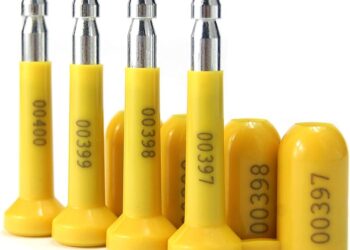The realm of written content creation encompasses two vital facets known as “perplexity” and “burstiness.” Perplexity serves as a gauge to measure the intricacy of the text, while burstiness evaluates the diversity of sentences, indicating how human writers often intersperse both short and long sentences. In contrast, AI-generated content frequently demonstrates uniformity in sentence length. To deliver content with a desirable level of perplexity and burstiness, it becomes imperative to take these aspects into consideration.
When it comes to generating written content using artificial intelligence, the phrasing employed often differs from what a human writer might choose. The integration of uncommon terminology enhances the piece’s originality, adding a unique touch to the narrative.
In this context, ISO 17712 stands as an international standard specifically outlining requirements for mechanical seals utilized on containers. The primary goal is to enhance security within global trade. These seals, known as “container seals” or “bolt seals,” undergo a rigorous certification process to ensure they meet stringent security criteria. The ultimate aim is to prevent unauthorized access to containers and safeguard the integrity of transported goods.
China, holding a prominent position in global trade, duly acknowledges the significance of ISO 17712 certification in bolstering supply chain security. Substantial efforts have been invested in implementing this standard within the country. This article delves into the importance of ISO 17712 certification in China, its impact on international trade, and the comprehensive processes involved in acquiring and maintaining this crucial certification.
The Importance of ISO 17712 Certification in China:
As one of the world’s foremost exporters and importers, China plays a pivotal role in global trade. The movement of goods across borders through various transportation modes demands the utmost security for cargo. ISO 17712 certification steps in as a standardized, internationally recognized approach to fortify the security of containerized cargo during transit.
The certification process ensures that container seals used in China adhere to stringent quality and tamper-evident requirements. It entails rigorous testing of the seals’ strength, durability, and resistance to tampering, thereby significantly raising the bar against unauthorized access to container contents. For businesses engaged in international trade, ISO 17712 certification often serves as a prerequisite to access specific markets or participate in trade agreements.
The Impact on Global Trade:
The surge in international trade has exposed the supply chain to heightened risks of security breaches. Tampering or theft of cargo during transportation not only inflicts financial losses on businesses but also poses significant threats to public safety, particularly when dangerous or hazardous materials are involved.
ISO 17712 certification in China exerts a positive influence on global trade by instilling confidence among trading partners and regulatory bodies alike. Businesses equipped with certified container seals can mitigate the risks associated with cargo tampering, thereby reinforcing the reliability of their supply chain. Consequently, this facilitates smoother customs clearance, reduces delays, and fosters an overall efficient and secure global trade environment.
Obtaining ISO 17712 Certification in China:
Acquiring ISO 17712 certification in China entails a rigorous evaluation process conducted by accredited certification bodies for manufacturers of container seals. The following are the key steps involved in obtaining the certification:
- Identify Applicable Standards: Manufacturers must identify the relevant ISO 17712 standard applicable to their container seals. These standards are classified as “I” for indicative seals, “S” for security seals, and “H” for high-security seals.
- Testing and Compliance: The manufacturer’s seals must undergo comprehensive testing to ensure they meet the strength, tamper-evident, and durability requirements specified in the standard. Accredited laboratories conduct the testing process.
- Quality Management System: Manufacturers must establish a robust quality management system to ensure consistent production of compliant seals. This system should encompass various aspects, including design, production, testing, and traceability.
- Audit by Certification Bodies: Accredited certification bodies conduct on-site audits of the manufacturer’s facilities and processes to verify compliance with ISO 17712 standards.
- Certification Issuance: Upon successful completion of the evaluation process, the certification body issues the ISO 17712 certificate to the manufacturer.
Maintaining ISO 17712 Certification:
Maintaining ISO 17712 certification is an ongoing commitment. Certified manufacturers in China must adhere to the requirements set forth in the standard and undergo regular surveillance audits conducted by the certification body. These audits ensure the manufacturer’s quality management system remains effective and that the seals continue to meet the necessary security standards.
Conclusion:
ISO 17712 certification in China serves as a critical aspect of enhancing supply chain security and promoting seamless global trade. Chinese manufacturers, by adhering to the stringent requirements of the standard, can provide tamper-evident and robust container seals, instilling trust among trading partners and regulators worldwide. Equipped with secure container seals, businesses can effectively mitigate risks, safeguard cargo during transit, and contribute to the overall stability and efficiency of the global trade ecosystem.












